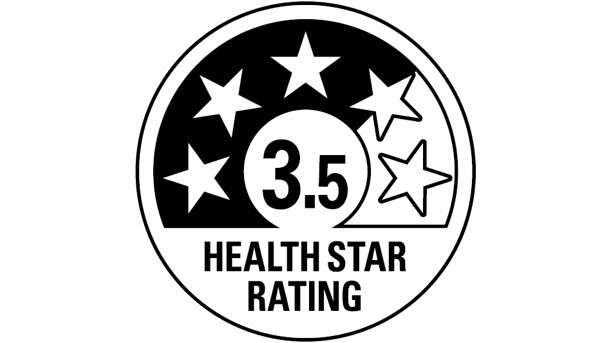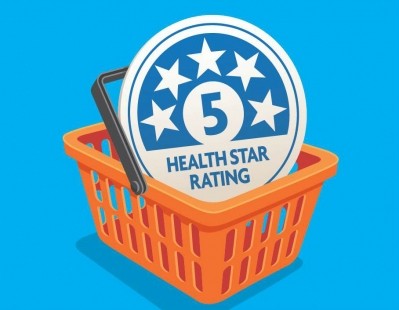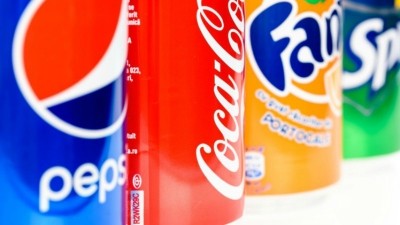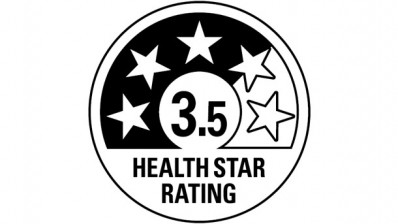‘Gaming the system’: Oceania’s Health Star Rating scheme under fire from academics and consumer groups

HSR ranks food and beverage items ‘healthiness’ levels by giving these stars – the more stars, the healthier the product. The system is currently implemented across both Australia and New Zealand on a voluntary basis.
It has been subject to multiple rounds of criticism especially across the past year, including causing consumer confusion to high-sugar drinks scoring highly using its algorithm and a lack of efficiency due to it not being implemented as a mandatory scheme.
Consumer advocacy group CHOICE has now proposed a different algorithm based on added sugar for the HSR, which if implemented would affect a significant number of F&B products.
Based on research from the George Institute for Global Health, CHOICE applied the new algorithm to 17 food items, where it found significant differences in stars as compared to current ratings.
"[This modelling] shows that penalising added sugar can have a significant impact on the Health Star Ratings of products," said CHOICE policy and campaigns advisor Linda Przhedetsky via a statement on the group’s website.
“[Products] with added sugar were penalised [and lost stars], but those with only naturally occurring sugars [received added stars than their current count].”
Many of the products that were hardest-hit were cereals, for example Kellogg’s Nutri-Grain and Uncle Toby’s Plus Protein. Both lost 2.5 stars, dropping from four to 1.5 stars.
“[The] primary reason for the huge drop in HSRs [for several of these] is that under this proposed change, these products could lose the ability to receive bonus points for protein content,” said CHOICE.
“Stronger treatment of added sugars would make it harder for cereals – and other products – to claim bonus points for adding protein and other beneficial nutrients to what are otherwise sugary treats.”
Some of the products also had stars added - Gippsland Dairy Natural Yoghurt, for example, gained 0.5 stars, as it does not contain any added sugar and its only sugar source is the lactose from its milk content.
“[The new algorithm] makes it easier to spot the healthier option,” they added.
"Manufacturers should clearly label the amount of added sugar that they put in what we eat and drink, and this should be reflected in Health Star Ratings."
Unhealthy products still score highly
According to George Institute of Global Health public health lawyer Alexandra Jones, many products classified as ‘unhealthy’ were not under the system’s purview, likely due to the voluntary nature of the HSR.
“Right now most unhealthy products simply don’t have the health star rating being displayed on them,” she told The Guardian.
“In fact, some products high in salt, sugar and fat are scoring too highly by gaming loopholes in the algorithm.”
Citing Nestle’s Milo as an example on ABC television programme Ask The Doctor earlier this month, Jones said that some of these products achieved high ratings based on ‘what the manufacturer says you should do with the food’.
“[For example, the manufacturer has said] that the way people should have Milo is three teaspoons with a cup of skim milk,” she explained.
“It fits the rules of the game but it's not in the spirit.”
Milo carried a 4.5 Health Star Rating until 2018, when Nestle removed this in response to a wave of public criticism. The rating remains for other Milo products.
Based on a recent study conducted on the system which Jones was a co-researcher on, currently less than one-third of products overall carry the HSR across Australia and New Zealand, and ‘these are mostly those that score well’.
The region’s F&B industry, including groups such as the Australian Beverage Council (AusBev) and Australian Food and Grocery Council (AFGC), is opposed to making the system mandatory and have previously said that progress with the scheme is going well.
“Uptake of the voluntary system in Australia has been faster than many comparable systems overseas,” Australian Food and Grocery Council (AFGC) Communications Director James Matthews told us.
He claimed that the HSR system should be continued ‘with appropriate refinement’, adding that ‘locking [the system] in regulation’ would prevent it from ‘maintaining the flexibility [to adapt to] changes in nutrition science’.
“[The HSR] has proved its potential as a successful public health intervention with monitoring, demonstrating it has the support and trust of consumers with many using it to guide their food and diet choices.”


















